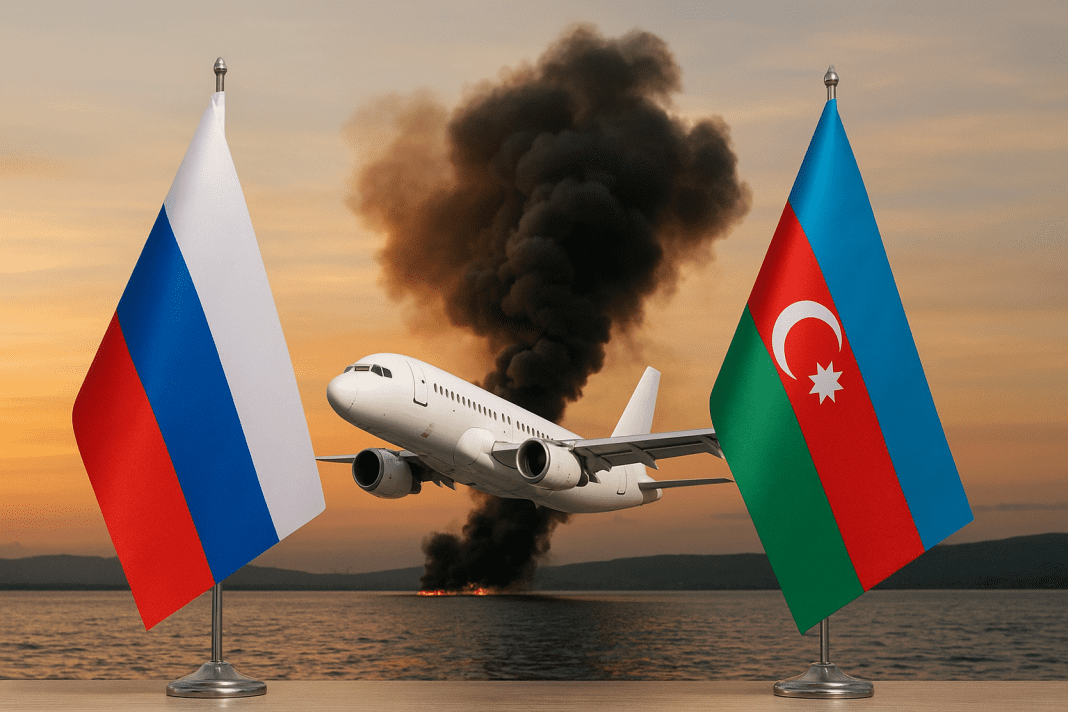Azerbaijan has freed the local bureau chief of Russia’s state-owned news outlet Sputnik following high-level talks with Moscow. The decision comes after weeks of tension between the two countries, fueled by legal actions against Russian media and escalating diplomatic strain.
Azerbaijan Releases Sputnik Editor Amid Tense Moscow-Baku Relations
The editor-in-chief of Sputnik Azerbaijan, who had been held in police detention in Baku, was moved to house arrest, according to officials. At this time, it remains unclear whether he still faces criminal charges. Authorities had previously arrested him and his deputy in June, citing claims that the news organization operated with “illegal financing.” Russia strongly rejected these allegations, calling the charges unfounded.
The release of the Sputnik editor followed negotiations in which both sides reportedly agreed to exchange detainees. Russia, in turn, released a citizen of Azerbaijan who had been arrested earlier. Reports indicate that the individual freed by Russian authorities was the former head of a cultural institution in Moscow.
Azerbaijan Charges India With Blocking SCO Membership Over Islamabad Ties
This development is part of a broader effort by both governments to ease tensions after a series of confrontations, including legal and diplomatic disputes. Analysts note that the release of media personnel often signals a desire to restore communication channels between states.
The Plane Crash That Sparked Tensions
The diplomatic tensions escalated after the tragic downing of an Azerbaijani Airlines passenger plane in December 2024. The aircraft was traveling from Baku to Grozny, a city in Russia’s Chechnya region, when it vanished from radar over the Caspian Sea. It later crashed near the Kazakh city of Aktau, resulting in the death of all 38 passengers on board.
For months, the exact cause of the crash remained unclear, fueling suspicion and diplomatic strain. The incident contributed to the worsening relations between Moscow and Baku, with both sides accusing each other of negligence or misconduct.
Bipartisan Azerbaijan sanctions review act seeks accountability for Armenian prisoners
On Thursday, President Vladimir Putin publicly acknowledged Russia’s role in the crash during a meeting in Tajikistan. He confirmed that two Russian anti-air missiles detonated near the plane amid a Ukrainian drone attack in Grozny. This marked the first official admission of Russian responsibility, bringing new clarity to a tragedy that had sparked international concern.
The acknowledgment of the missile incident has significant implications for the diplomatic dialogue between the two nations. It also sheds light on the sensitive security conditions in the region, particularly regarding military activity and air travel over conflict-prone areas.
Broader Implications for Media and Diplomacy
The release of the Sputnik Azerbaijan editor is closely linked to the broader political situation between Russia and Azerbaijan. The arrests of media personnel earlier this year had drawn attention to tensions over press freedom, legal regulations, and bilateral relations.
Experts suggest that such exchanges of detainees can serve as a mechanism for de-escalation, allowing both countries to stabilize diplomatic and cultural connections. The decision to place the editor under house arrest rather than continued detention reflects an effort to balance legal procedures with international negotiations.
The events surrounding the plane crash, the arrests, and the release of detainees highlight the complex dynamics between the two nations. They illustrate how incidents involving security, aviation, and media can intersect with high-level diplomacy.
In recent months, authorities in both countries have increasingly emphasized dialogue and negotiation as tools to manage conflict. The release of the editor and the reciprocal freeing of an Azerbaijani citizen by Russia signal ongoing engagement at the governmental level, aiming to reduce friction after months of escalating tensions.
While the investigation into the plane crash and the legal status of the media personnel continue, the current developments provide a factual account of recent events. The moves by both governments underscore the delicate nature of international relations and the importance of negotiation in resolving disputes that involve both security and media freedoms.

